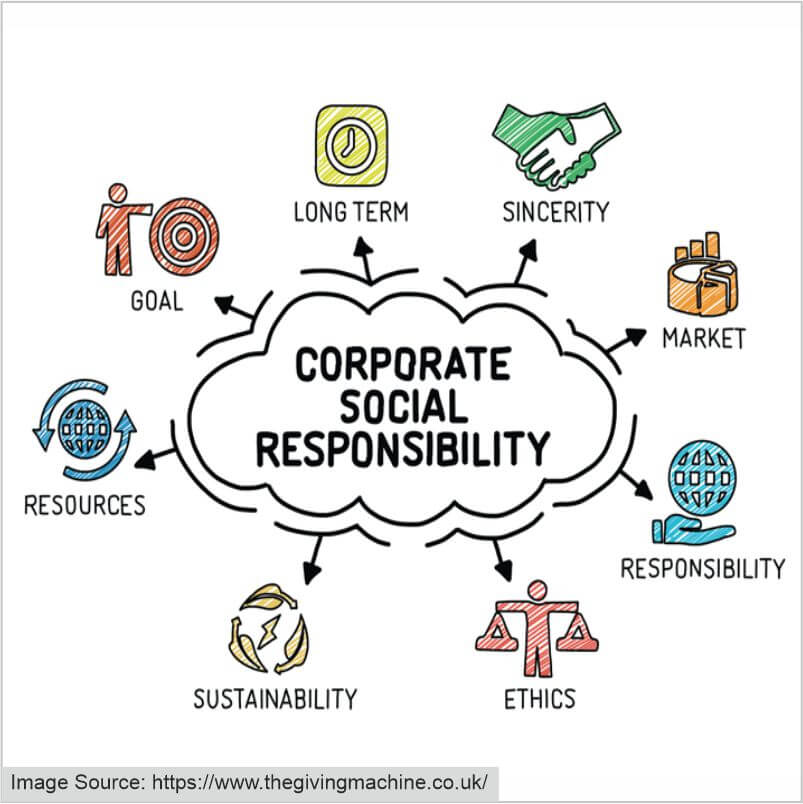Corporate Social Responsibility (CSR) has become a fundamental aspect of modern business, moving beyond profit-making to include ethical practices and social contributions. In today’s world, where consumers and stakeholders increasingly demand accountability, CSR initiatives are a powerful way for companies to demonstrate their commitment to social and environmental causes. This blog explores the role of CSR in charity, highlighting how businesses are making a positive impact on communities and society.
The Evolution of CSRThe concept of CSR has evolved considerably over the past few decades. Initially, businesses focused primarily on maximising profits, with limited attention to their social and environmental responsibilities. However, as awareness of global challenges such as poverty, inequality, and climate change has grown, so too expects companies to play an active role in addressing these issues. Today, CSR is seen as an essential part of business operations, with many companies integrating social responsibility into their core values and mission statements.
CSR and Charitable ContributionsCSR initiatives often manifest in various forms, including philanthropy, ethical labour practices, and sustainable environmental strategies. Charitable contributions are one of the most visible and impactful ways companies give back to society. Here’s how CSR supports charity:
- Financial Donations:
Many companies allocate a portion of their profits to charitable organisations. These donations fund a wide range of causes, from healthcare and education to disaster relief and environmental conservation. For instance, companies like Unilever and HSBC have established charitable foundations that contribute significantly to global initiatives.
- Employee Volunteering Programmes: Beyond financial support, companies also encourage their employees to participate in volunteer activities. These programmes often include paid volunteer days, where employees can engage in community service. This not only benefits the charities involved but also fosters a sense of purpose and fulfilment among employees.
- Cause-Related Marketing:
Cause-related marketing is a CSR strategy where companies partner with charities to promote a specific cause. A portion of the profits from certain products or services is donated to the charity, raising both funds and awareness. This approach creates a win-win scenario, enhancing the company’s brand image while supporting important social causes.
- Sustainable Practices:
Companies are increasingly adopting sustainable practices as part of their CSR strategies, recognising that environmental stewardship is a crucial aspect of social responsibility. By reducing their carbon footprint, minimising waste, and using resources efficiently, businesses contribute to broader environmental goals, aligning with the missions of environmental charities.

CSR-driven charity initiatives offer numerous benefits for both companies and the communities they serve:
- Enhanced Reputation:
Companies that actively engage in CSR activities are often viewed more favourably by consumers, investors, and the public. A strong CSR programme can differentiate a brand in a competitive market and build long-term customer loyalty.
- Employee Engagement:
CSR initiatives involving employees can lead to higher job satisfaction and retention. Employees are more likely to feel proud of working for a company that prioritises social responsibility, which can boost morale and productivity.
- Positive Social Impact:
The ultimate goal of CSR in charity is to make a tangible difference in people’s lives. Whether through funding education programmes, supporting healthcare initiatives, or protecting the environment, CSR efforts have the potential to create lasting positive change.
Corporate Social Responsibility is no longer a peripheral concern for businesses; it is central to how companies operate and engage with the world. By integrating charitable initiatives into their CSR strategies, businesses can contribute to the greater good while also reaping benefits in terms of reputation, employee satisfaction, and brand loyalty. As the importance of CSR continues to grow, so will the positive impact of corporate charity on global challenges, paving the way for a more sustainable and equitable future.
